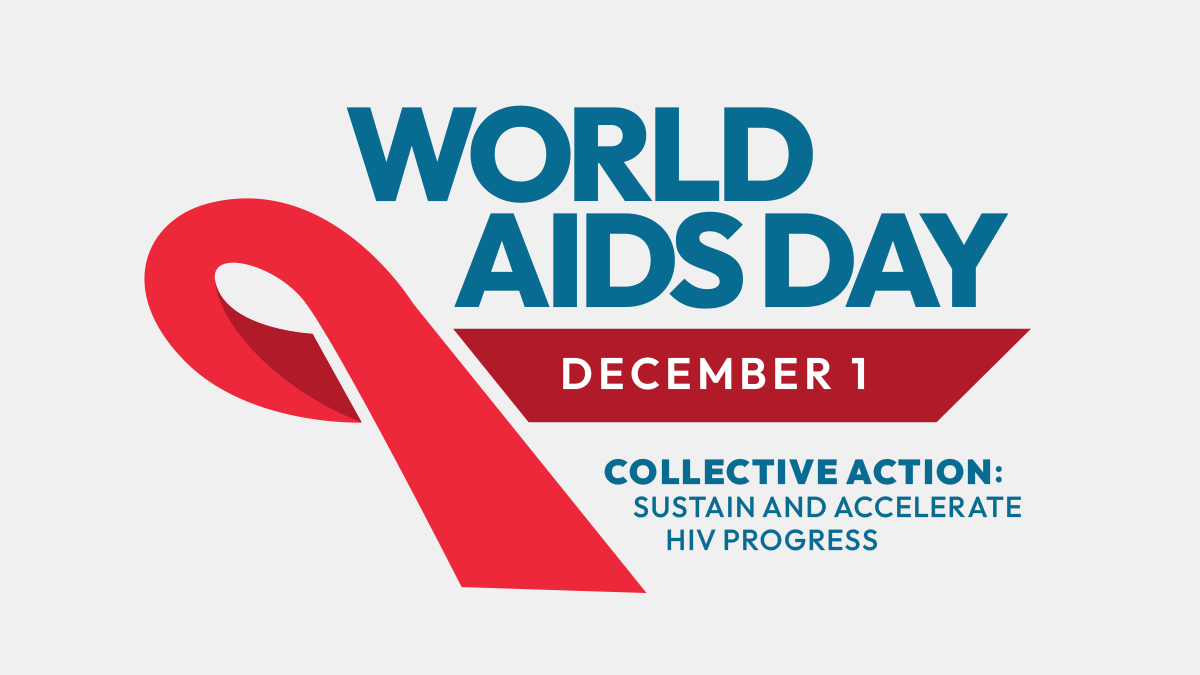What to know
World AIDS Day is an opportunity for every community and individual to honor the more than 32 million people who have died worldwide from AIDS-related illness. December 1 is a day for voices to unite by sharing experiences, remembering those lost, and standing together in the fight against HIV.
Annual Observance
Dec 1, 2024
What is World AIDS Day?

Two World Health Organization (WHO) public information officers started World AIDS Day in 1988 as an international day for global health. Since then, it has been observed each year on December 1.
World AIDS Day is a day of solidarity for people around the world who are affected by HIV and for voices to unite by sharing experiences, remembering those lost, and standing together in the fight against HIV. The observance is also reserved as a day to bridge new and effective programs and policies across different sectors around HIV/AIDS.
While great strides have been made since the first known cases of AIDS were reported in 1981, the disease remains a public health challenge. World AIDS Day is an opportunity for individuals and communities to honor the more than 32 million people worldwide who have died from AIDS-related illness.
Every year, United Nations agencies, federal agencies, and societies from across the globe join together to campaign around specific themes related to HIV. To learn more about the History of World AIDS Day and see all the previous themes, visit the UNAIDS World AIDS Day page.
World AIDS Day at CDC
CDC works on the frontlines in the U.S. and in 46 countries worldwide to align efforts and accelerate progress to end HIV as a public health threat. Bringing a combination of scientific expertise, technical know-how, and strong partnerships, CDC continues to lead the way in HIV prevention and treatment at home and abroad. Discover more about CDC's work on HIV in the U.S. and Global HIV.
The Story of HIV at CDC: Online Exhibition
This online exhibition (developed by the David J. Sencer CDC Museum in association with the Smithsonian Institution) explores CDC's early response to the HIV epidemic. The exhibit offers an over 40-year timeline documenting CDC's historic role in addressing the HIV epidemic in the United States and around the world. It also captures the personal experiences of public health experts who led the CDC investigations that shaped health care policy and saved millions of lives in the process.
Reflections on 40 Years of HIV (David J. Sencer CDC Museum)
World AIDS Day partners
Resources
World AIDS Day social media

CDC's Let's Stop HIV Together campaign has World AIDS Day social content you can share with your social media audiences.
Use the hashtags #WorldAIDSDay and #StopHIVTogether to help spread the word.
Additional resources
- AtlasPlus (includes CDC's domestic HIV surveillance data)
- Fulfilling America's Promise to End the HIV/AIDS Pandemic by 2030 (PEPFAR)
- DREAMS: Partnership To Reduce HIV/AIDS In Adolescent Girls and Young Women
- Global HIV and TB Resources
- Let's Stop HIV Together
- National HIV/AIDS Strategy
